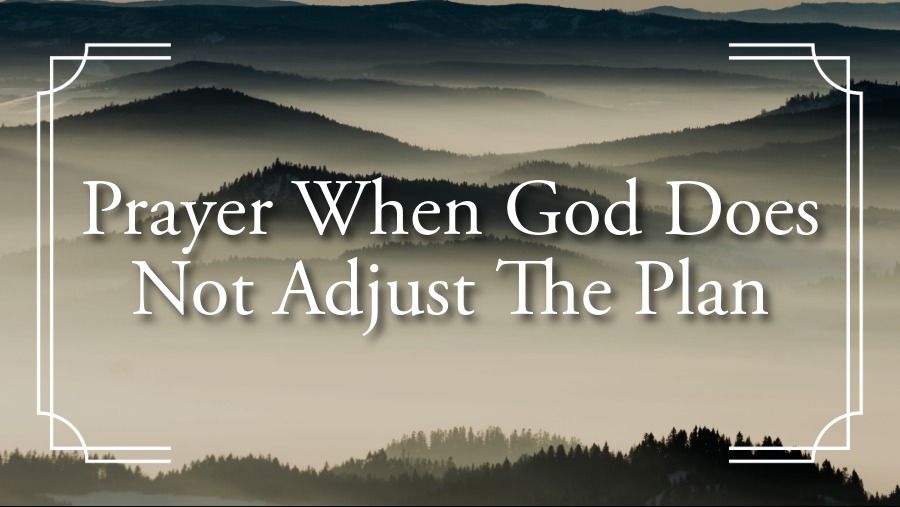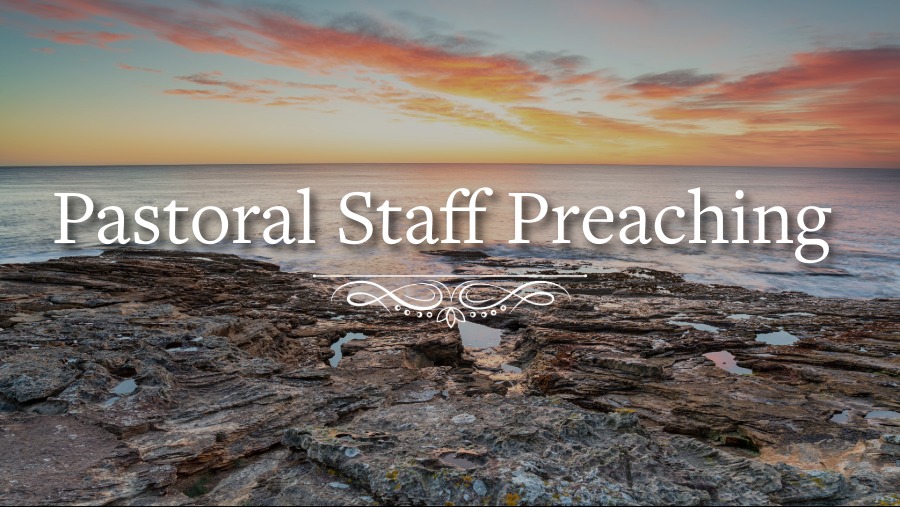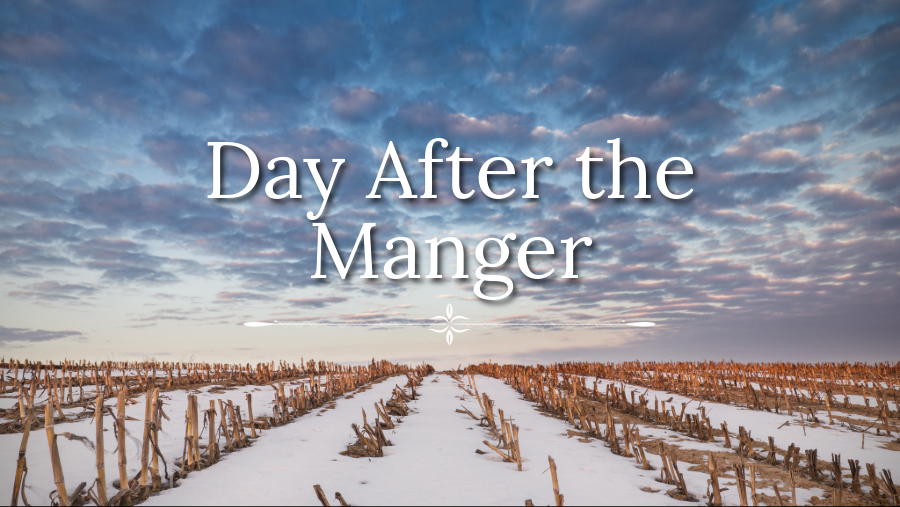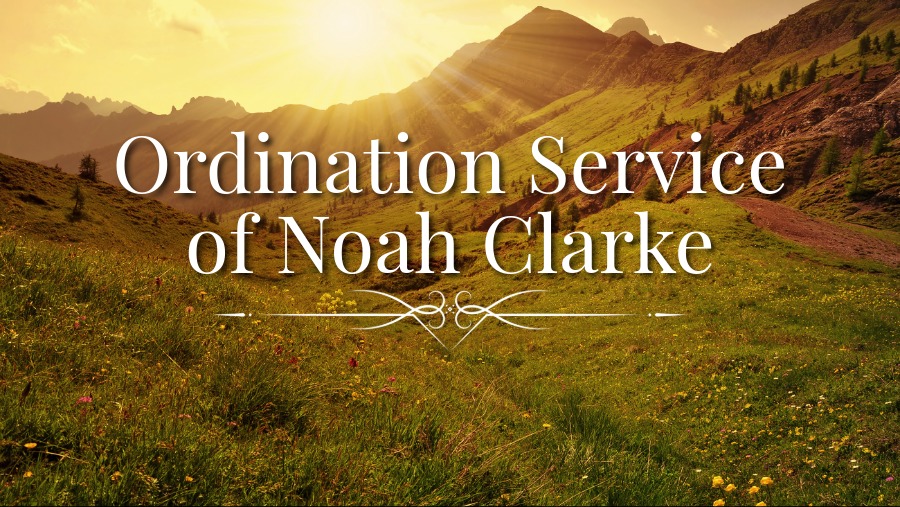
Ordination Service of Noah Clarke
The evening service was marked by a solemn and joyful event—the ordination of Brother Noah Clarke for the gospel ministry. Pastor Ortiz opened the message with Acts 13:1–3, explaining that ordination follows the biblical pattern of the church at Antioch, where the Holy Spirit separated men for His work. He emphasized that ordination is not a mere ceremony but a recognition of God’s calling on a servant’s life and a reminder that ministers are to be servants, not dictators—leaders who guide God’s people with humility and faithfulness.
After testimonies and pastoral recommendations affirming Bro. Noah’s character, doctrine, and calling, Pastor Ortiz delivered a charge from Joshua 1:5–9, then Brother Noah preached the evening message from Ruth 1, applying lessons of obedience, trust, and courage amid fear.
I. The Pastor’s Charge — “Be Strong and of Good Courage” (Joshua 1:5–9)
Pastor Ortiz likened Joshua’s commission to Noah’s new ministry call—a task beyond human strength but sustained by God’s presence. He exhorted Noah to be:
- Strong in the Lord — Strength is not found in self-confidence but in total dependence on God. Strength will fade in moments of weakness, but divine strength never fails.
- Courageous in Faith — Courage is the willingness to walk by faith even when the path is uncertain. True courage is not the absence of fear, but the decision to act in faith despite fear.
- Faithful to God’s Word — “Turn not from it to the right hand or to the left.” Success is not measured by numbers, money, or fame, but by faithfulness to God’s purpose. The key to lasting fruitfulness in ministry is meditation and obedience to Scripture.
- Prosperous in God’s Way — God’s definition of prosperity is spiritual success—fulfilling His purpose. If Noah would remain faithful, courageous, and Scripture-centered, God would prosper his path and use his life to influence others for generations.
The pastor concluded by reminding the church that sending Noah out was both a bittersweet and glorious moment. The church was to pray, support, and encourage him as their own. Then the pastoral staff laid hands on Noah, committing him to the Lord’s service, followed by the presentation of a Certificate of Ordination and a Bible personally used by Pastor Ortiz, symbolizing the passing of spiritual guidance and wisdom.
II. Bro. Noah’s Ordination Sermon — “Watch Out When It Seems God Doesn’t Know What He’s Doing” (Ruth 1)
Opening in Ruth 1:1–21, Brother Noah drew from the story of Elimelech, Naomi, and their sons to show how fear, doubt, and impatience can lead believers out of God’s will. He structured his message around the theme:
“When life doesn’t make sense, trust God instead of fleeing from Him.”
1. The Decision to Sojourn (vv. 1–2)
Elimelech’s family left Bethlehem—literally “the house of bread”—to escape a famine and entered Moab, a land outside God’s will. Their intent was temporary (“to sojourn”), but they ended up continuing there, showing how small compromises often become lasting disobedience.
Noah warned that believers often leave the will of God not because of actual need, but because of fear of what might happen. The family’s move was not driven by faith but by fear of famine—fear of the unknown and fear of failing as a provider. He cautioned:
“Anytime we feel we must disobey God to help God out, watch out—Satan is near.”
2. The Cost of Leaving God’s Will (vv. 3–5)
Outside of God’s plan, tragedy struck: Elimelech and his two sons died, leaving Naomi bereaved and broken. Noah pointed out that sin often carries consequences not just for the sinner, but for the entire family.
“When we gamble with sin, we gamble with life itself. We can’t predict what it will cost.”
He likened disobedience to walking into a snare—the fear of man brings a trap that restricts freedom and joy. Just as a wild animal sacrifices freedom when caught, believers lose spiritual vitality when trapped by fear or sin.
3. The Return to God’s Will (vv. 6–7, 20–21)
When Naomi heard that “the Lord had visited His people and given them bread,” she realized God had always been faithful. She had left full, but returned empty—proof that God’s provision was never the problem; doubt was.
“Oftentimes, we leave God’s will because of a fear that hasn’t even happened yet.”
Noah noted Naomi’s name change to Mara (“bitter”), symbolizing how disobedience leaves the soul resentful and regretful. Yet, even in her return, God’s mercy was evident—her story would eventually lead to the lineage of Christthrough Ruth and Boaz.
III. The Underlying Cause: Fear
Noah emphasized that fear is one of Satan’s most effective tools against God’s people. Fear can come in two forms:
- Fear of the Unknown – Doubting God’s provision and control over the future.
- Fear of Man – Worrying about reputation, approval, or failure before others.
Both fears lead to poor decisions and spiritual compromise. However, Scripture teaches that truth conquers fear:
“You shall know the truth, and the truth shall make you free.” (John 8:32)
He testified of personally battling fear in his ministry journey and learning to face each fear through God’s Word—searching Scripture to find truth that countered lies of anxiety and doubt.
“When you address fear with truth, you begin to live free. You can obey God courageously.”
Noah illustrated this with humor and honesty—from his childhood attempts at overcoming fear to the deeper truth that freedom comes not from recklessness but from knowing and trusting God’s Word.
IV. The Remedy: Replace Fear with Faith
Drawing from Psalm 56:3 — “What time I am afraid, I will trust in Thee,” — Noah closed with practical counsel:
- Face your fears with Scripture. Replace lies with promises like “I will never leave thee nor forsake thee.”
- Trust God’s presence. As God told Joshua, “I will be with thee.”
- Obey despite fear. True faith acts even when outcomes are uncertain.
- Remember who fights for you. “Greater is He that is in you than he that is in the world.”
He called the congregation to stop allowing fear to hinder obedience—to stop “standing in the way of sinners” or “walking in the counsel of the ungodly.” Instead, they should stand firm in God’s promises, learn from past failures, and move forward in faith.



















.jpeg)


